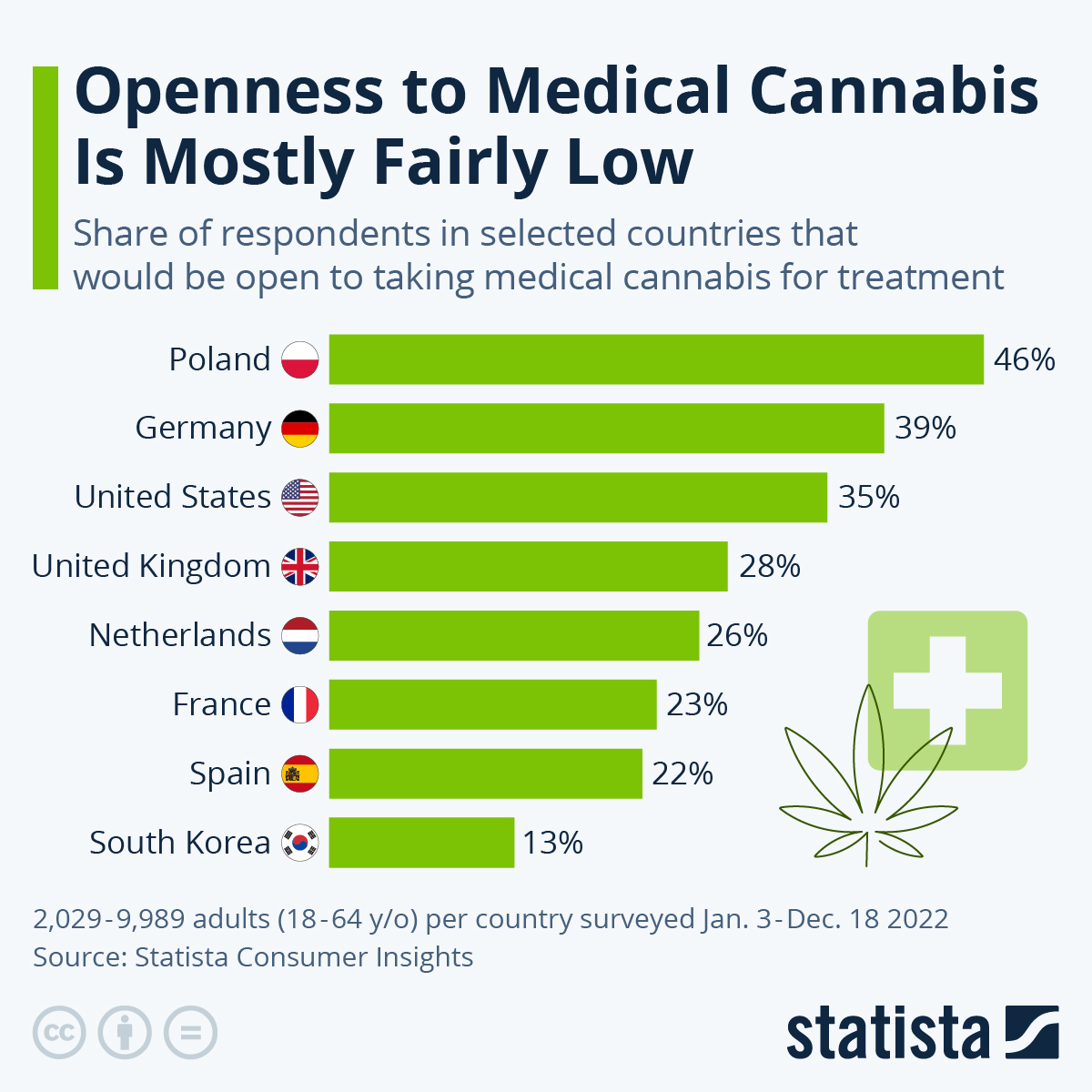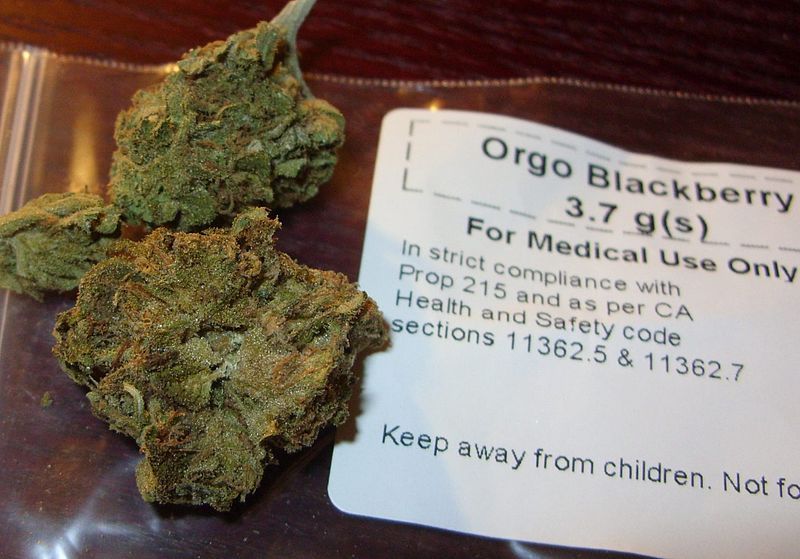Utilizing the Prospective of Medical Marijuana: Understanding Its Function in Supporting Wellness and Alleviating Health Issues

The Scientific Research Behind Medical Cannabis
The efficacy of clinical cannabis in dealing with different health problems is rooted in its interaction with the endocannabinoid system within the body. This complicated biological system plays a critical duty in managing various physiological procedures such as hunger, discomfort state of mind, memory, and sensation. The energetic compounds in clinical cannabis, recognized as cannabinoids, imitate the endocannabinoids created naturally by the body, binding to cannabinoid receptors to regulate these bodily features.
Among the primary cannabinoids discovered in clinical cannabis is cannabidiol (CBD), which is non-psychoactive and has been examined for its possible therapeutic impacts. CBD interacts with the endocannabinoid system by preventing the break down of endocannabinoids, leading to boosted degrees of these substances in the body. This mechanism is thought to contribute to the anti-inflammatory, analgesic, and anxiolytic residential properties of CBD, making it a promising alternative for conditions such as chronic pain, anxiousness problems, and inflammatory diseases. By understanding the science behind just how medical marijuana connects with the endocannabinoid system, scientists can remain to discover its possibility in advertising wellness and minimizing numerous health and wellness problems.
Therapeutic Characteristics of Marijuana
Comprehending the intricate interactions in between cannabinoids and the endocannabinoid system drops light on the restorative buildings of marijuana for various wellness conditions. Cannabinoids, such as tetrahydrocannabinol (THC) and cannabidiol (CBD), are the primary compounds accountable for the medical benefits of cannabis.
Researches have actually demonstrated the efficiency of clinical marijuana in alleviating signs linked with persistent pain, several sclerosis, and chemotherapy-induced nausea and vomiting - Medical Marijuana Card Near me. Furthermore, cannabis has revealed promise in treating mental health conditions like anxiety, depression, and post-traumatic anxiety problem (PTSD)
Additionally, the anti-inflammatory homes of cannabinoids make cannabis a potential therapy choice for inflammatory problems such as arthritis and inflammatory digestive tract illness. The healing capacity of cannabis remains to be explored through research, providing brand-new insights into its role in advertising health and attending to a large variety of health and wellness problems.
Medical Marijuana for Persistent Pain
Exploring the efficacy of medical cannabis in handling chronic pain reveals its possible as a feasible therapy option for people seeking choice pain alleviation approaches. Persistent discomfort influences millions worldwide, usually resulting in a lessened lifestyle and dependence on typical discomfort medications that may come with unwanted side impacts or risks of addiction. Medical cannabis, with its energetic substances like THC and CBD, has revealed assurance in reducing persistent pain by engaging with the body's endocannabinoid system to regulate discomfort understanding.
Studies have actually indicated that medical marijuana can efficiently reduce neuropathic pain, arthritis-related pain, and discomfort related to conditions like numerous sclerosis. Its anti-inflammatory residential properties can also add to discomfort alleviation in problems such as fibromyalgia. Medical cannabis uses a much view more all-natural approach to pain monitoring, possibly decreasing the demand for opioids and various other drugs with harsher side effects.
As research study into the advantages of clinical cannabis for chronic pain continues to expand, its duty in giving all natural pain alleviation solutions ends up being increasingly substantial for clients and healthcare suppliers alike.

Marijuana for Stress And Anxiety and Stress
Research study shows the potential of cannabis in mitigating signs of anxiousness and stress, providing an appealing method for those looking for option therapeutic options. Anxiety and stress and anxiety prevail mental wellness issues that can dramatically impact a person's well-being and everyday performance. Traditional treatments such as treatment and medication might not always work for every person, resulting in an expanding rate of interest in different solutions like clinical marijuana.
Marijuana consists of substances understood as cannabinoids, such as cannabidiol (CBD) and tetrahydrocannabinol (THC), which interact with the body's endocannabinoid system to regulate various functions, consisting of mood and anxiety feedbacks. Studies have revealed that CBD, in specific, has anxiolytic properties, implying it can help lower stress and anxiety levels. THC, on the other hand, may give relaxation and mood-lifting impacts that can be helpful for handling stress.
Individual actions to cannabis can vary, so it is necessary for individuals considering marijuana as a therapy alternative for anxiety and stress and anxiety to talk to medical care experts well-informed about clinical marijuana to establish the most appropriate items and dosages for their requirements.
Cannabis in Epilepsy Treatment
With the proven efficacy of cannabis in resolving anxiousness and anxiety, focus has turned towards its prospective role in the treatment of epilepsy. Epilepsy is a neurological disorder characterized by recurrent seizures, which can considerably affect a person's lifestyle. For individuals whose seizures are not sufficiently managed with conventional treatments, discovering alternative healing choices such as medical cannabis has become increasingly appropriate.
Research study on making use of cannabis for epilepsy is still progressing, yet there is expanding proof to recommend that particular compounds in marijuana, such as cannabidiol (CBD), may provide anticonvulsant results. CBD, in specific, has shown guarantee in minimizing the frequency and seriousness of seizures in some people with epilepsy, causing the approval of Epidiolex, a CBD-based medicine, for the treatment of particular kinds of seizures.
While even more research studies are needed to fully recognize the mechanisms behind marijuana' possible advantages for epilepsy and to establish the most reliable solutions and does, the current findings suggest an appealing future for incorporating medical cannabis right into epilepsy therapy strategies.
Conclusion
In verdict, clinical marijuana has actually revealed promising restorative residential properties in treating various health and wellness problems such as persistent pain, epilepsy, anxiety, and stress and anxiety. Comprehending the function of clinical marijuana in medical care can lead to better therapy alternatives for people looking for option remedies.
From persistent discomfort administration to stress and anxiety alleviation and even site link in the treatment of epilepsy, the duty of medical marijuana is fascinating and multifaceted. Medical Cannabis Clinic.Checking out the efficacy of medical cannabis in taking care of persistent discomfort exposes its prospective as a sensible therapy option for individuals looking for alternative pain relief techniques. Clinical cannabis, with its active compounds like THC and CBD, has actually shown guarantee in relieving chronic pain by engaging with the body's endocannabinoid system to regulate sleep center near me pain perception
Research studies have suggested that medical cannabis can successfully reduce neuropathic discomfort, arthritis-related discomfort, and pain associated with problems like several sclerosis.In verdict, medical cannabis has actually shown appealing restorative homes in dealing with different wellness concerns such as persistent pain, tension, anxiety, and epilepsy.